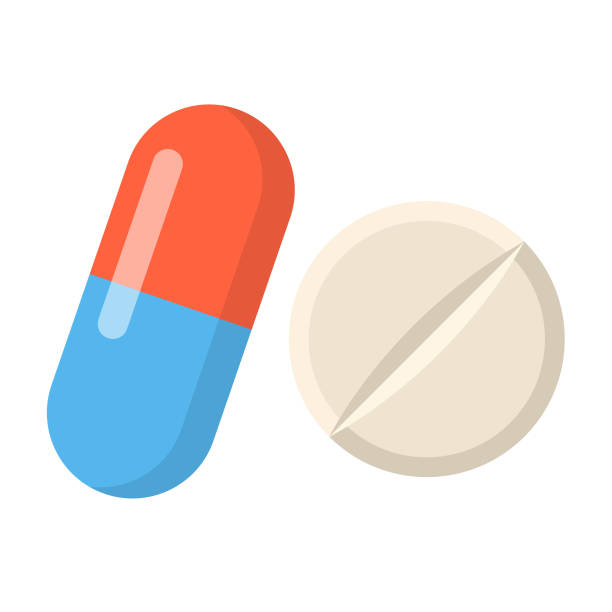Amlodipine Besilate + Atorvastatin
Indications
Amlodipine:
- Hypertension
- Chronic Stable Angina
- Vasospastic Angina (Prinzmetal's or Variant Angina)
Atorvastatin:
- Heterozygous Familial and Nonfamilial Hypercholesterolemia
- Elevated Serum TG Levels
- Primary Dysbetalipoproteinemia
- Homozygous Familial Hypercholesterolemia
Pharmacology
Amlodipine is a peripheral arterial vasodilator that acts directly on vascular smooth muscle to cause a reduction in peripheral vascular resistance and reduction in blood pressure.
Atorvastatin is a synthetic lipid lowering agent. It is an inhibitor of 3-hydroxy-3-methyl-glutaryl-coenzyme A (HMG-CoA). This enzyme catalyzes the conversion of HMG-CoA to mevatonate, an early and rate limiting step in the synthesis of cholesterol.
Dosage And Administration
Amlodipine (Adult): The usual initial antihypertensive oral dose is 5 mg once daily with a maximum dose of 10 mg once daily. Elderly individuals or patients with hepatic insufficiency may be started on 2.5 mg once daily dose and this dose may be used when adding Amlodipine to other antihypertensive therapy. Dosage should be adjusted according to each patient's need. The recommended dose for chronic stable or vasospastic angina is 5-10 mg, with the lower dose suggested in the elderly and in patients with hepatic insufficiency.
Atorvastatin (Adults): The patient should be placed on a standard cholesterol-lowering diet before receiving Atorvastatin and should continue on this diet during treatment with Atorvastatin Hypercholesterolemia (Heterozygous Familial and Nonfamilial) and Mixed Dyslipidemia (Fredrickson Types IIa and IIb): The recommended starting dose of Atorvastatin is 10 mg daily. The dosage range is 10 to 80 mg once daily. Atorvastatin can be administered as a single dose at any time of the day with or without food.
Homozygous Familial Hypercholesterolemia: The dosage of Atorvastatin in patients with homozygous FH is 10 to 80 mg daily.
Interaction
Drug interaction with atorvastatin: The risk of myopathy during treatment with drugs of this class is increased with concurrent administration of cyclosporine, fibric acid derivatives, niacin (nicotinic acid), erythromycin, azole antifungals. When atorvastatin and antacid suspension containing magnesium and aluminum hydroxide were co administered, plasma concentrations of atorvastatin decreased approximately 35%. However, LDL-C reduction was not altered. Plasma concentrations of atorvastatin decreased approximately 25% when colestipol and atorvastatin were co administered. However, LDL-C reduction was greater when atorvastatin and colestipol were co-administered than when either drug was given alone. When multiple doses of atorvastatin and digoxin were co-administered, steady state plasma digoxin concentrations increased by approximately 20%. Patients taking digoxin should be monitored appropriately. In healthy individuals, plasma concentrations of atorvastatin increased approximately 40% with co- administration of atorvastatin and erythromycin. Co- administration of atorvastatin and an oral contraceptive increased AUC values for norethindrone and ethinylestradiol by approximately 30% and 20%. These increases should be considered when selecting an oral contraceptive for a woman taking atorvastatin.
Drug interaction with amlodipine: Amlodipine may potentiate the effect of other antihypertensive (e.g.Beta-blockers, ACE inhibitors, Alpha-1-blockers and Diuretics). In clinical interaction studies, Amlodipine did not affect the pharmacokinetics of Atorvastatin, Digoxin, Warfarin or Cyclosporine.
Contraindications
Combination of amlodipine and atorvastatin is contraindicated in patients with known hypersensitivity to any component of this medication. Combination of amlodipine and atorvastatin contains atorvastatin and is therefore contraindicated in patients with active liver disease which may include unexplained persistent elevations of serum transaminases.
Side Effects
In general, treatment with amlodipine and atorvastatin combination is well tolerated. Some common side effects include headache, dizziness, tiredness, sleepiness, stomach pain, nausea, upset stomach, diarrhea, edema, flushing, arrhythmia, palpitation, muscle and joint pain, tendon problems etc.
Pregnancy And Lactation
Pregnancy: category X. Combination of amlodipine and atorvastatin should be administered to women of childbearing age only when such patients are highly unlikely to conceive and have been informed of the potential hazards.
Lactation: It is not known whether amlodipine or atorvastatin is excreted in human milk. Because of the potential for adverse reactions in nursing infants, women taking combination of amlodipine and atorvastatin should not breast-feed.
Precautions And Warnings
Increased Angina and/or Myocardial Infarction Rarely, patients, particularly those with severe obstructive coronary artery disease, have developed documented increased frequency, duration and/or severity of angina or acute myocardial infarction on starting calcium channel blocker therapy or at the time of dosage increase. The mechanism of this effect has not been elucidated. Liver Dysfunction. HMG-CoA reductase inhibitors, like some other lipid-lowering therapies, have been associated with biochemical abnormalities of liver function.
Therapeutic Class
Anti-anginal & lipid lowering drugs
Use in special populations
Patients with renal insufficiency: Renal disease has no influence on the plasma concentrations or lipid effects of Atorvastatin; thus no adjustment of dose is required. Hemodialysis is not expected to significantly enhance the clearance of Atorvastatin since the drug is extensively bound to plasma proteins.
Patients with hepatic dysfunction: In patients with moderate to severe hepatic dysfunction, the therapeutic response to Atorvastatin is unaffected but exposure to the drug is greatly increased.
Storage Conditions
Store in a cool and dry place. Protect from light and moisture. Keep all medicines out of the reach of children.

